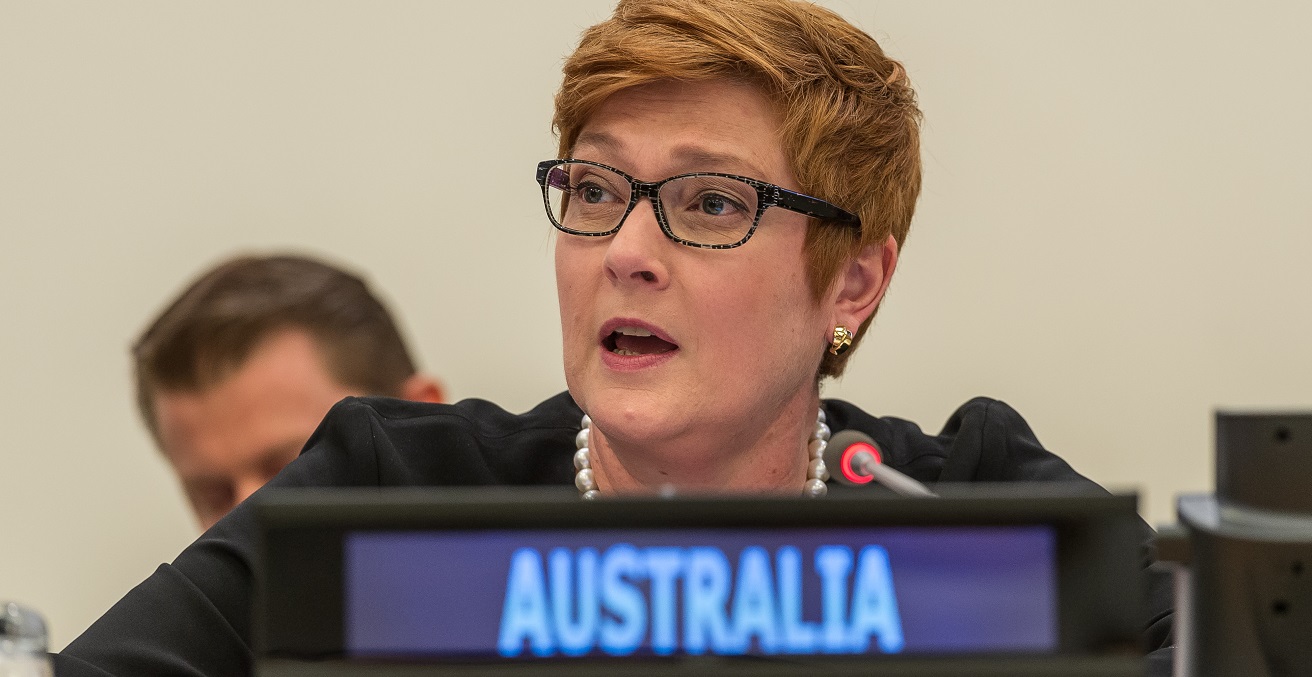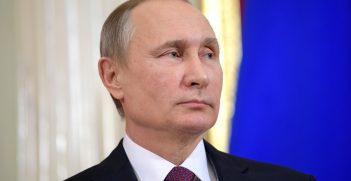Australian Threadbare Diplomacy In Conflict

Australia’s Department of Foreign Affairs and Trade (DFAT) has been starved of funds for a quarter century. In these uncertain times, strengthened diplomacy is urgently needed to meet the complex drivers of violent conflicts, rising geo-political tensions, and inequity in the region.
DFAT’s experiences suggest we can and should do more to seek security through sustainable peace, but this cannot be adequately effective with threadbare resourcing. Diplomacy and aid need to be woven durably into Australia’s national capacity, to help lead Australia towards integrated approaches to pressing challenges, work on deepening relationships within the region, and closer to congruent goals of sustainable peace.
We are living in insecure and uncertain times, caused by global pandemic, economic contraction, climate change emergency, intensifying geo-political tensions, and an accelerating arms race, with more wars active than at any time since 1945. Despite these imperatives, little attention is given to the most effective means for reducing and transforming the drivers of inequity and violent conflict. Increasing military spending is not the only possible response to international or civil conflict and should never be the primary one. Diplomatic and dialogue-based conflict resolution approaches are imperative to address the drivers of conflict and inequity and promote sustainable peace.
Since its important contribution to Cambodia’s negotiated settlement in the early 1990s, Australia has provided various types of support to peace processes in the Indo-Pacific region. Respected Australian international relations leaders, such as former Foreign Minister Gareth Evans, who led Australian peacemaking efforts in Cambodia, see Australia as having capacity and credibility to draw on in this area, but it has often lacked political will to do as much as it could and should. Professor John Braithwaite echoes this view, arguing Australia has instructive recent regional experience, for example in Cambodia, Solomon Islands, and Bougainville, which gives Australia enough credibility to be a bigger contributor internationally, and to build its credibility further. However, ascertaining what role Australia can play – and its capacity to do so – is usefully informed by knowledge of what that practice has been in the past.
DFAT and the University of Melbourne have been funding such an examination of the department’s diplomatic experiences with conflict. The resulting report, Security Through Sustainable Peace: Australian International Conflict Prevention and Peacebuilding, emphasises the need for Australia to strengthen diplomacy and includes recommendations for enhancing its role in supporting peace and security in the Indo-Pacific region.
The purpose of Security Through Sustainable Peace is to review Australian experience of peace processes and suggest possible approaches for strengthening them. The goal has been to increase the potential effectiveness, credibility, and feasibility of Australian peacebuilding efforts, principally by drawing on the experience of over 120 current and retired Australian diplomats, as well as a few defence personnel, police, academics, and INGO staff who have worked in often complex, threatening, and entrenched conflict situations. Their experiences and comments were transcribed, organised, and distilled into the conclusions and recommendations of the report.
One of the major themes of this report relates to the necessity for political leadership to prioritise diplomatic engagement and, therefore, the development of strategy and policy. It also elaborates on how to re-establish and develop DFATs functions, capacity, and structure to support conflict prevention and peacebuilding in foreign policy. As well, it details the imperative for guiding the Commonwealth’s rationale and resourcing for diplomacy to ensure that political solutions are afforded the primacy they require in whole-of-government approaches to addressing global challenges.
Contemporary conflicts occur in a globalised web of shared challenges, all of which require political solutions. Strengthening diplomacy and aid is critical to seeking security and peace. Even before the pandemic, conflict prevention and peacebuilding work was under-resourced, a situation which will only worsen amidst severe underfunding of diplomacy and diminishing aid and development allocations.
Australian diplomacy has had a low priority throughout the last quarter century. The proportion of total Commonwealth expenditure allocated to diplomacy fell from 0.38 percent in 1995-96 to 0.22 percent in 2018-19, a decline of 42 percent. The budget announced on 6 October 2020 included forward estimates for diplomacy which will reduce their share of Commonwealth outlays even further to 0.18 percent in 2023-24. This means that by 2023-24, Australian outlays on diplomacy will have been cut by 53 percent during the previous 28 years.
Halving the proportion of spending on diplomacy at a time of rising tension is shockingly irresponsible and ensures Australia’s diplomatic service is so inadequately funded and staffed that it cannot be fully effective. Australia’s overseas representation is lower than that of all other G20 countries. Strengthening the diplomatic service would enable extension of Australia’s international representation, increasing participation in management of bilateral and multilateral relations and the international rule of law, and enhancement of Australia’s effectiveness as a humanitarian and cooperative global citizen.
DFAT’s diplomats recognise that the department needs both generalists and specialists. This combination is vital to increase provision of training opportunities on diplomatic dialogue, conflict prevention, and peacebuilding within the department’s Diplomatic Academy, at Australian universities, and in diplomatic study in these areas overseas. There would also be great value in establishing a specialist section of the department to specialise in preventative diplomacy and peacebuilding with staff who have professional training and experience in prevention of violent conflict and peacebuilding. Cutting across its work, enhanced in recent years, is a strong commitment to gender equality at home and abroad – essential in peacebuilding.
Bob Breen’s chapter in the report summarising diplomatic, defence, and Australian Federal Police experience in Bougainville and Solomon Islands demonstrates that the evolution of a more effective “whole-of-government” and “whole-of-region” framework requires interventions in conflict and instability and must prioritise diplomatic engagement and seek political solutions. This conclusion stands in contradiction to increasing militarisation and securitisation trends seen in the region. From a scholarly perspective, while much conflict research has reviewed these experiences, not enough has focused on lessons for peacebuilding through whole-of-government implementation.
Australian aid and development assistance in the region is a critical aspect of Australia’s influence and foreign policy. Moreover, aid is an essential requirement for an Australian contribution to conflict prevention. But this requires a strong and sustained increase in development assistance. External assistance is sometimes a necessary condition for attempting to address causes of conflict such as inequities, severe poverty, inadequate health and education services, and high energy needs. Current government aid policies are dismal – down to 0.22 percent of GNI compared with their conservative colleagues in Britain who, until recently, allocated 0.7 percent.
Commitment to conflict prevention and peacebuilding through partnering with others and dialogue are core elements of Australian safety, security, and prosperity. DFAT has been able to contribute in a range of ways, but with ever-diminishing resources. Australia’s capacity to address national interests, pursue enhanced relationships in the region, and generate and support political solutions that can best address drivers of conflict, tensions, and grievances are best led by strengthened diplomatic capacity. Political leadership is needed from all governments that starts valuing the role DFAT must play. This requires rethreading and repairing the fabric of implementing foreign policy. Balancing Australia’s military, intelligence, and economic interest with diplomacy and aid are imperatives for approaching peaceful security.
Dr Tania Miletic is the Assistant Director of the newly established Centre for Peacebuilding at the University of Melbourne. She was a Senior Research Fellow with the School of Social and Political Sciences at the University of Melbourne and part of the Australian International Conflict Resolution Project. For the past 20 years she has been engaged in policy-oriented research, peacebuilding practice, teaching post-graduate courses in peace and conflict studies and supporting actors engaged in peace processes in the Asia-Pacific region.
Professor John Langmore is a Professorial Fellow in Political Science at the University of Melbourne. He was Director of the UN Division for Social Policy and Development in New York for five years from 1997 and then Representative of the International Labour Organization to the United Nations for two. When appointed, he was the most senior Australian working in the UN Secretariat. He has written or jointly edited six books; the most recent being a report for the Department of Foreign Affairs and Trade entitled Security Through Sustainable Peace: Australian International Conflict Prevention and Peacebuilding.
This article is published under a Creative Commons Licence and may be republished with attribution.





